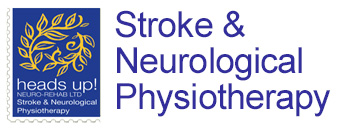Parkinson’s Disease
How Parkinson’s Disease can affect your life
Parkinson’s disease is caused by a loss of nerve cells in part of the brain called the substantia nigra. This leads to a reduction in a chemical called dopamine in the brain which plays a vital role in regulating the movement of the body. A reduction in dopamine is responsible for many of the symptoms of Parkinson’s disease.
These include involuntary shaking, or tremor, in parts of the body; slow movement and stiff, inflexible muscles. Your ability to move in bed, to stand up from sitting and your walking pattern all may be affected. You may also experience a wide range of other physical and psychological symptoms which include depression and anxiety; balance problems; loss of sense of smell; problems sleeping and memory problems
Supporting you with Parkinson’s Disease
Early intervention after diagnosis is beneficial to keep you as active as possible and to provide strategies that may help as you notice changes to your ability. However, we can support you at any stage of the disease.
What to expect from heads up
First assessment
- We will take time to listen to how Parkinson’s is impacting your life, what difficulties you are experiencing and discuss what is important to you to focus on.
- We will assess how Parkinson’s is affecting you physically, cognitively and emotionally and support you to formulate short- and long-term goals to work on.
- We will take time to explain what we are doing and to answer any questions you may have about your situation.
- We will provide some initial advice, treatment and guidance with exercises to carry out at home.
- We will discuss what your treatment plan may look like and offer sessions that will suit your needs.
If appropriate for you, we have group sessions available which run in 4 week blocks and follow a circuit format. They focus on ballistic activity which enhances your strength, co-ordination and balance control.
Treatment plan
Assessment is ongoing throughout the treatment process as your presentation changes.
During the initial stages of treatment, we will assess your walking, muscle strength, muscle length, balance and posture. We will set up, progress and monitor a home exercise programme, as well as providing advice and support for you and your family. We will teach you strategies to improve your walking, and introduce techniques to make some of your automatic movements easier, in order to help to prevent falls. We will also help to increase your confidence regarding movement and everyday activities, with the goal of improving and maintaining your independence and quality of life.
After discussion, we may liaise with your GP or consultant about your medication and medical management. We may signpost you to organisations that can support you and/or refer you to other health professionals.
There will be regular opportunity to discuss your changing needs.
